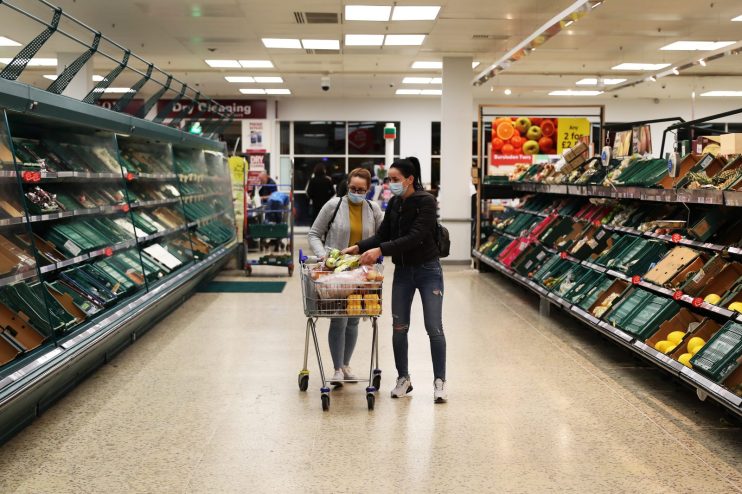From hero to zero: How supermarkets became the villains of the pandemic

The recent news from Public Health England (PHE) that supermarkets are the most frequent common exposure setting for those catching Covid-19 in England is both shocking and devastating.
But should we really be too surprised?
PHE used data collated from the NHS test and trace app during the lockdown in November when supermarkets, as in the first lockdown, were allowed to remain open.
While so-called “non-essential” retail, gyms, pubs and restaurants — in other words, the very settings which have adapted and displayed reasonably good Covid-secure practices and procedures — have been forced to close, the supermarkets, fuelled by taxpayers money in the form of business rate holidays, have continued to trade.
In the early days of the first lockdown, supermarkets were hailed as heroes — and, of course, the key workers in the stores are justifiably so. But as we’ve all begun to feel a level of Covid fatigue, a certain degree of complacency has crept into the way they approach the threat from the virus. Are you still greeted by members of staff at the door, religiously managing store occupancy? No, thought not.
Regardless, it was never going to be the case that some perspex screens and hand sanitiser at the entrance would ever add up to an effective defence against the virus in supermarkets.
So where does all this leave us? First, we can all look forward to more rigorous attention being given to the numbers of customers allowed in a store at any one time. So, wrap up warm because you’ll likely be standing in the cold on your trip to buy groceries.
Here in England, we no doubt face the Welsh model of closing off “non-essential” aisles in a somewhat vain hope that the virus has a penchant for luxury items and leaves the fruit and veg well alone.
But a crisis often brings fresh hope, and in this case, it is that we begin to take a more serious approach to making all premises, including supermarkets, safe from the virus. And I’m not referring to one-way systems and the aforementioned screens.
Because the good news is that the technology now exists to radically mitigate the risk from the virus by almost entirely eradicating it in certain circumstances.
Wouldn’t it make more sense if, instead of compensating struggling shops through loans, furlough, business rate holidays and so forth, the government provided grants for businesses to invest in the technology now available to ensure that their premises are as safe as possible, and therefore not only enable them to continue trading, but in the case of the supermarkets, prevent them from becoming breeding grounds for the virus?
Supermarkets have become complacent because they’ve been allowed to. First seen as heroes, they are now undoubtedly the villain of the piece. Let’s hope that they can swiftly regain their former status.
Main image credit: Getty